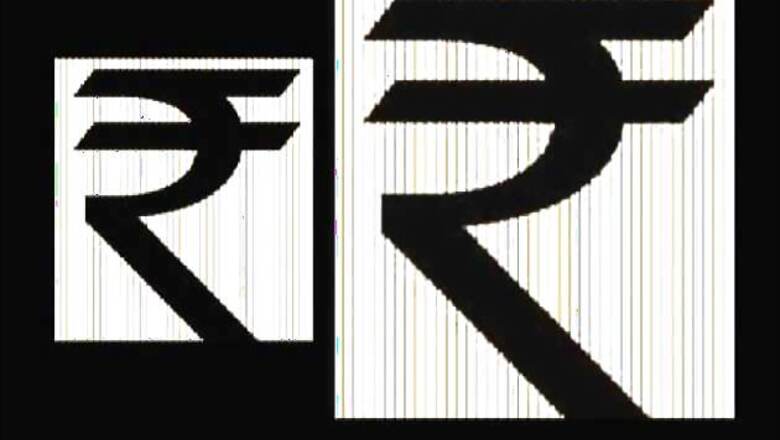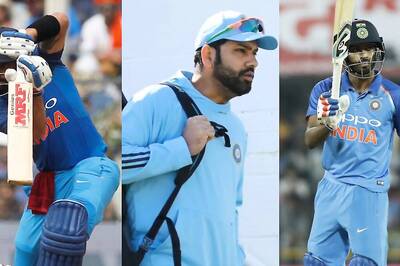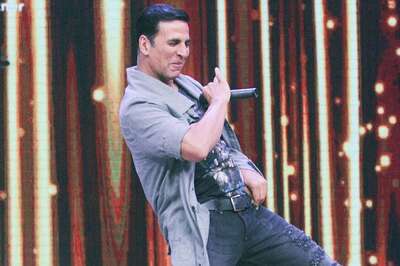
views
Personal FN
The year 2011 was rather turbulent for the Indian economy as it was steered by series of downbeat economic and geopolitical events, both in India as well as across the globe. As the Reserve Bank of India (RBI) adopted an anti-inflationary monetary policy stance, to tame the inflation bug, it took a toll on the economic growth rate clocked by our country as it dwindled due to high interest rate regime and slowdown in consumption.
Thus as an impact of the economic slowdown, advance tax payment made by India Inc. for Q3FY12 too reported a growth of mere 10 per cent as against 18 per cent growth in the second quarter and 14 per cent growth witnessed in the first quarter of 2011-12.
At present although the Government has fixed an optimistic target for the fiscal deficit at 4.6 per cent of the GDP, its disinvestment plan has taken a beating due to unfavourable economic and political conditions which have occurred in the past.
Thus against a disinvestment target pegged at Rs 40,000 crore for the fiscal year 2011-12, they have mopped only Rs 1,144.5 crore (as per the latest data published by Ministry of Disinvestment).
Moreover, with the Government revising its borrowing target to Rs 4.7 trillion by March 2012 (from the budgeted Rs 4.17 trillion), it is rather worrisome as it implies that fiscal deficit target of 4.6 per cent for fiscal year 2011-12 may not be met, and there could be a deviation of +1.0 per cent. It is noteworthy that for the period April to December 2011, the fiscal deficit has already spiralled to 92 per cent of the budgeted sum, against 64 per cent for the same period a year before.
Hence, we think that with the Government battling to meet the fiscal target, the focus in Budget 2012 would be on fiscal consolidation. Thus we can expect that in 2012 the Government may emphasise on fiscal measures, before they turn a little populist in the year 2013 which will be last full budget before the elections schedule in May 2014.
It is noteworthy that unless focus is not shifted to fiscal consolidation there could be the following risk which we may face:
WPI Inflation: If the Government expenditure is focused on consumption spending, it can result in inflationary pressures creeping in.
High interest rate regime: Thus in order to tame inflationary pressures, the central bank too may step in and increase policy rates, which would translate in high borrowing cost and input cost as well, which may have a dampening effect on earnings and thus the taxes paid by companies. This again may depress revenues and compel the Government to borrow more. But excessive borrowing may again push interest rates upwards as investors may not be interested in oversupply of Government securities unless high interest rates are offered.
Thus, unless steps towards fiscal consolidation aren't taken we could be caught in a vicious circle of low economic growth, high inflation and a high interest rate regime.
We also are of the view that, apart from focusing on the goal of fiscal consolidation, the Government is also likely to give a push to key reforms (such as FDI in retail and aviation sector), which are indeed required to propel economic growth by attracting foreign investments. Like the last budget, enough emphasis on rural development is also likely to follow in Budget 2012 to provide fillip to rural infrastructure and demand.
Hence expecting that fiscal consolidation may be the focus of Union Budget 2012, but due to concerns on present economic dynamics we think that the following measures may be taken.
Direct taxes
Although the Government has planned to replace more than five decade-old Income Tax Act, 1961 with the Direct Tax Code (DTC) in April 2012, it now appears that it may be introduced only from April 2013 instead, due to differences on some of the issues. The Parliamentary Standing Committee on Finance (headed by Mr Yashwant Sinha, a senior BJP leader and former Finance Minister) has postponed adoption of its final report on the Direct Tax code, and is expected to give its nod by March 02, 2012 only after three more meetings.
Thus the existing statute for Direct Tax i.e. the Income Tax Act, 1961 would continue to be in effect, where we can expect the following fiscal measures to be adopted.
Individuals
Base exemption
As far as the base exemption limit under the Income Tax Act, 1961 is concerned, we think the Government is likely to move a step closer to the DTC (Direct Tax Code), but not much populist measures can be expected. The base exemption limit may be extended to Rs 2.00 lakh (from the current Rs 1.80 lakh), but keeping the current tax slabs unchanged.
Say if you are a male individual having a net taxable income of Rs 10,00,000; and if the base exemption limit is increased to Rs 2.00 lakh, then your income tax liability will be Rs 1,54,000 - thereby resulting in a tax saving of Rs 2,060.
For senior citizens (qualifying from 60 years of age) and women, the basic exemption limit is also likely to increase by Rs 20,000 each to Rs 2.70 lakh and Rs 2.10 lakh respectively. But for very senior citizen category as introduced in the last Union Budget, the base exemption limit is likely to be retained at Rs 5,00,000.



















Comments
0 comment